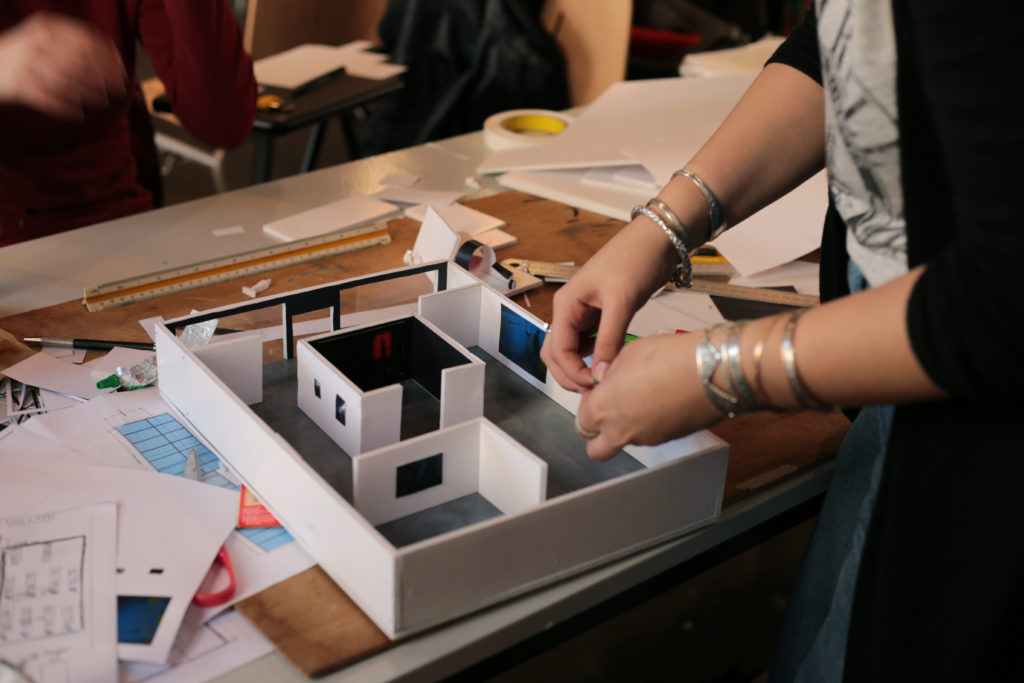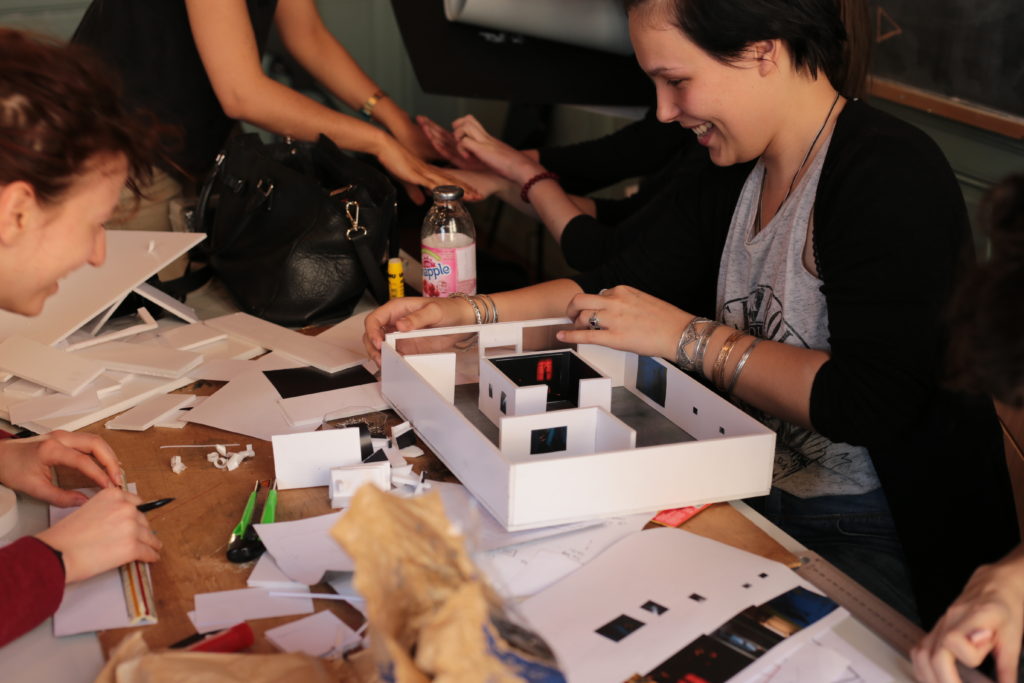With theoretical and practical courses, providing approximately 35 hours of classes per week that run from September to May, this full time curriculum is entirely dedicated to supervised workshops and classes including:
the history of classical, modern and contemporary art / drawing: colour, painting / drawing: body, architecture, design / contemporary plastic practises / photography / digital tools / English / A.V.A: Analysis, Verbalisation, Argumentation.
With the school being located very close to the site of the Subsistances, students have the possibility of availing of certain resources in the school of Fine Arts. Contact with the school is fluid and constant, with certain activities taking place in the Ensba, such as photography classes and technical sessions (including digital applications, introduction to print techniques). The students also have access to the library in the Ensba to assist them with their research, giving them full access to the lending section. They also have the opportunity to follow a cycle of conferences given by guest lecturers, that are held in the Ensba each Wednesday from October to May.
Specific events are dotted throughout the school year:
- Workshops with guest artists
- teaching sessions that take place “beyond the walls”: with students and teachers being involved in cultural and artistic events created and run by different cultural structures in Lyon:
- conferences at the Institut d’Art Contemporain, encounters with artists, the Biennial of Contemporary Art, the Biennial of Dance, etc.
- a study trip intended to introduce students to various artistic forms and practises;
- in January of each year a meeting is held with students from many of the previous years who have since begun studying in various art schools in France and abroad, providing an opportunity for them to exchange their experiences and make connections with current students
An evolving class schedule allows the teaching team to take student development into account and thus provide a variety of pedagogical approaches.

© Alexandra Czmil

© Alexandra Czmil
